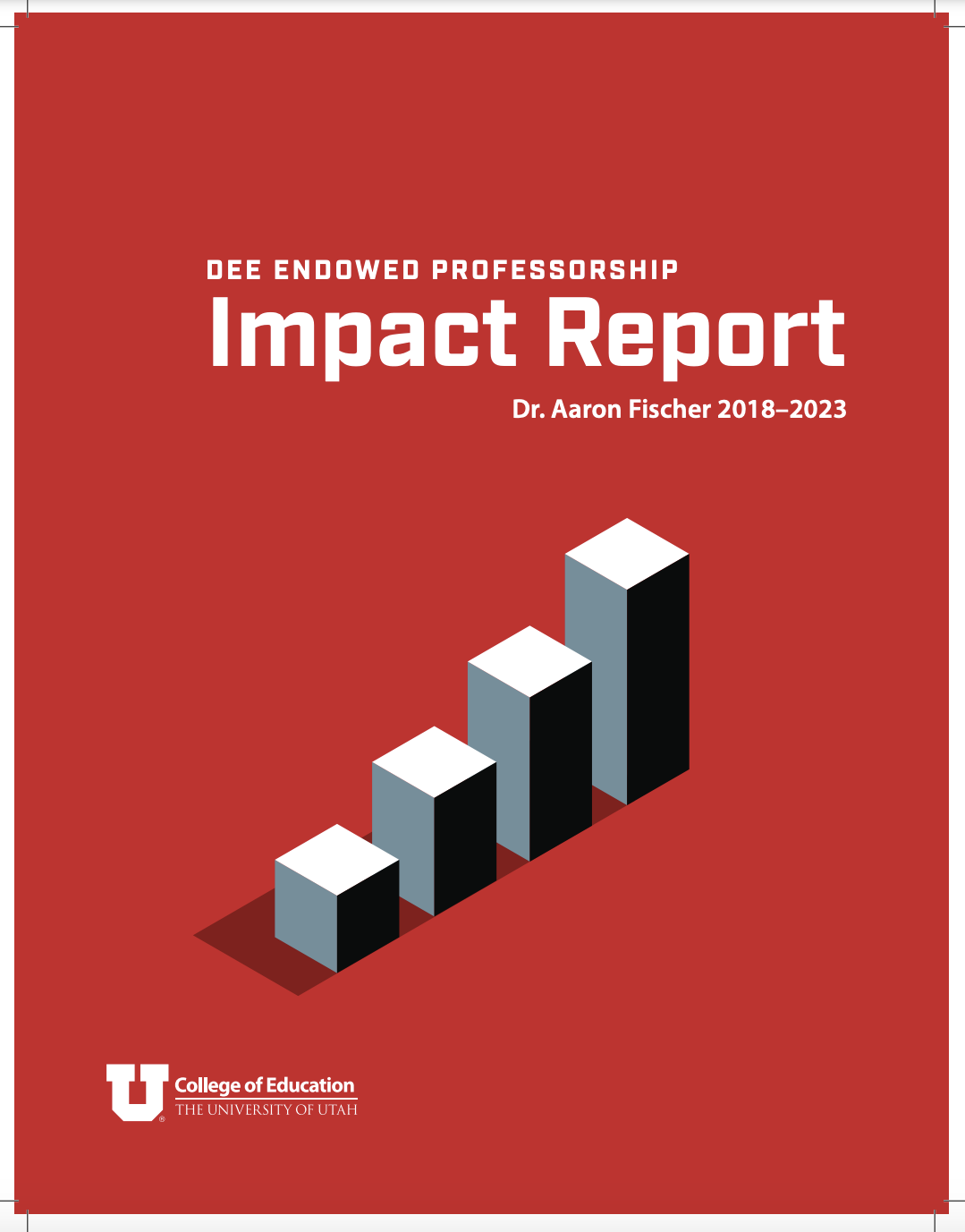Current PositionAssociate Professor of School Psychology
Adjunct Associate Professor of Child Psychiatry Dee Endowed Professorship Impact Report
|
BiographyDr. Fischer has been working with individuals with autism spectrum disorder (ASD) and their families for over 10 years. He graduated from the University of Miami, where he earned a bachelors degree in psychology and worked as a research coordinator at the Center for Autism and Related Disabilities.
Dr. Fischer completed his masters and doctoral degree in school psychology at Louisiana State University. Before arriving at the University of Utah in 2014, he completed his predoctoral internship in clinical psychology at the May Institute in Massachusetts. His internship and graduate work focused on providing evidence-based practice in schools, hospitals, and mental health clinics to children with disabilities and their families. Specifically, Dr. Fischer’s clinical interests concentrate on the assessment and treatment of children and adolescents with ASD, as well a providing support and training to their families. As such, his scholarship is considerably influenced by his applied work in those areas. Additionally, Dr. Fischer has experience in the assessment and treatment of problem behavior, as well as the acquisition of adaptive skills, in individuals with ASD and developmental disabilities. |
Education |
License & Certification |
|
- Ph.D., School Psychology, Louisiana State University, Baton Rouge, LA
- M.A., School Psychology, Louisiana State University, Baton Rouge, LA - B.A., Psychology, University of Miami, Coral Gables, FL |
- Licensed Psychologist-Utah
- Licensed Behavior Analyst-Utah - Board Certified Behavior Analyst-Doctoral Designation |
Research Interests
Dr. Fischer’s research interests follow two distinct lines of inquiry that are directly applicable to the fields of school and pediatric psychology. First, he is interested in creating and evaluating effective strategies for psychologists engaging in consultation, while incorporating cutting-edge technology.
Currently, he is evaluating videoconferencing as a strategy to conserve school resources and remotely consult with teachers. His research will continue to evaluate the use of videoconferencing across multiple areas of consultation and school psychology. Dr. Fischer’s second line of research lies in evaluating and advancing evidence-based interventions for children and adolescents with an ASD and their families (i.e., parent training). Currently, he is evaluating behavioral parent-training programs and parent-provided behavioral feeding interventions through videoconferencing.
Currently, he is evaluating videoconferencing as a strategy to conserve school resources and remotely consult with teachers. His research will continue to evaluate the use of videoconferencing across multiple areas of consultation and school psychology. Dr. Fischer’s second line of research lies in evaluating and advancing evidence-based interventions for children and adolescents with an ASD and their families (i.e., parent training). Currently, he is evaluating behavioral parent-training programs and parent-provided behavioral feeding interventions through videoconferencing.
Awards
- University of Utah Online Excellence Award (August 2020)
- College of Education Junior Faculty Service Award (May 2020)
- Celebrate U Research Award (April 2020)
- Dee Endowed Professor of School Psychology (July 2018)
- American Psychological Association Early Career Achievement Award (April 2016)
- Society for the Study of School Psychology Early Career Research Award (June 2015)
- School Psychology Research Collaboration Conference Early Career Scholar (July 2014)
- College of Education Junior Faculty Service Award (May 2020)
- Celebrate U Research Award (April 2020)
- Dee Endowed Professor of School Psychology (July 2018)
- American Psychological Association Early Career Achievement Award (April 2016)
- Society for the Study of School Psychology Early Career Research Award (June 2015)
- School Psychology Research Collaboration Conference Early Career Scholar (July 2014)


